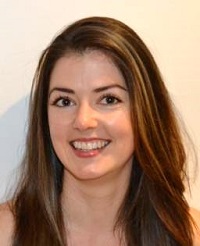Dr. Karina McCusker
Postdoctoral Research Assistant
Centaur Publications
2025
McCusker, K.  ORCID: https://orcid.org/0000-0002-1886-5323, Westbrook, C.
ORCID: https://orcid.org/0000-0002-1886-5323, Westbrook, C.  ORCID: https://orcid.org/0000-0002-2889-8815, Battaglia, A., Mroz, K., Courtier, B. M., Huggard, P. G., Wang, H., Reeves, R., Walden, C. J., Cotton, R., Fox, S. and Baran, A. J.
(2025)
Estimating ice water content and snowfall rate from radar measurements in the G-band.
Atmospheric Measurement Techniques.
ISSN 1867-8548
doi: 10.5194/egusphere-2025-3974
(In Press)
ORCID: https://orcid.org/0000-0002-2889-8815, Battaglia, A., Mroz, K., Courtier, B. M., Huggard, P. G., Wang, H., Reeves, R., Walden, C. J., Cotton, R., Fox, S. and Baran, A. J.
(2025)
Estimating ice water content and snowfall rate from radar measurements in the G-band.
Atmospheric Measurement Techniques.
ISSN 1867-8548
doi: 10.5194/egusphere-2025-3974
(In Press)
2024
McCusker, K.  ORCID: https://orcid.org/0000-0002-1886-5323, Baran, A. J., Westbrook, C.
ORCID: https://orcid.org/0000-0002-1886-5323, Baran, A. J., Westbrook, C.  ORCID: https://orcid.org/0000-0002-2889-8815, Fox, S., Eriksson, P., Cotton, R., Delanoë, J. and Ewald, F.
(2024)
The first microwave and submillimetre closure study using particle models of oriented ice hydrometeors to simulate polarimetric measurements of ice clouds.
Atmospheric Measurement Techniques, 17 (11).
pp. 3533-3552.
ISSN 1867-8548
doi: 10.5194/amt-17-3533-2024
ORCID: https://orcid.org/0000-0002-2889-8815, Fox, S., Eriksson, P., Cotton, R., Delanoë, J. and Ewald, F.
(2024)
The first microwave and submillimetre closure study using particle models of oriented ice hydrometeors to simulate polarimetric measurements of ice clouds.
Atmospheric Measurement Techniques, 17 (11).
pp. 3533-3552.
ISSN 1867-8548
doi: 10.5194/amt-17-3533-2024
2021
McCusker, K.  ORCID: https://orcid.org/0000-0002-1886-5323, Westbrook, C. D.
ORCID: https://orcid.org/0000-0002-1886-5323, Westbrook, C. D.  ORCID: https://orcid.org/0000-0002-2889-8815 and Tyynelä, J.
(2021)
An accurate and computationally cheap microwave scattering method for ice aggregates: the Independent Monomer Approximation.
Quarterly Journal of the Royal Meteorological Society, 147 (735).
pp. 1202-1224.
ISSN 1477-870X
doi: 10.1002/qj.3967
ORCID: https://orcid.org/0000-0002-2889-8815 and Tyynelä, J.
(2021)
An accurate and computationally cheap microwave scattering method for ice aggregates: the Independent Monomer Approximation.
Quarterly Journal of the Royal Meteorological Society, 147 (735).
pp. 1202-1224.
ISSN 1477-870X
doi: 10.1002/qj.3967
2020
McCusker, K.  ORCID: https://orcid.org/0000-0002-1886-5323
(2020)
Fast, approximate methods for
electromagnetic wave scattering by
complex ice crystals and snowflakes.
PhD thesis, University of Reading.
doi: 10.48683/1926.00101018
ORCID: https://orcid.org/0000-0002-1886-5323
(2020)
Fast, approximate methods for
electromagnetic wave scattering by
complex ice crystals and snowflakes.
PhD thesis, University of Reading.
doi: 10.48683/1926.00101018
2019
McCusker, K.  ORCID: https://orcid.org/0000-0002-1886-5323, Westbrook, C. D.
ORCID: https://orcid.org/0000-0002-1886-5323, Westbrook, C. D.  ORCID: https://orcid.org/0000-0002-2889-8815 and Moiola, A.
(2019)
Analysis of the internal electric fields of pristine ice crystals and aggregate snowflakes, and their effect on scattering.
Journal of Quantitative Spectroscopy and Radiative Transfer, 230.
pp. 155-171.
ISSN 0022-4073
doi: 10.1016/j.jqsrt.2019.04.019
ORCID: https://orcid.org/0000-0002-2889-8815 and Moiola, A.
(2019)
Analysis of the internal electric fields of pristine ice crystals and aggregate snowflakes, and their effect on scattering.
Journal of Quantitative Spectroscopy and Radiative Transfer, 230.
pp. 155-171.
ISSN 0022-4073
doi: 10.1016/j.jqsrt.2019.04.019
Last update: 9th December 2024
